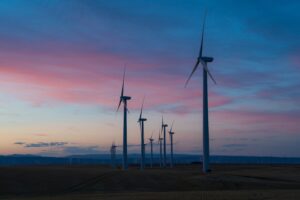Only a handful of countries set to reach net zero by 2050
Researchers from Yale and Columbia have found only a few countries are on track to meet net-zero by 2050, including Denmark, the UK, Botswana and Namibia.
180 countries were ranked according to their environmental policies as part of the Environmental Performance Index (EPI) which revealed many countries are significantly behind in reaching targets.
While the UK ranked second, behind Denmark, the United States fell from its 23rd place in the 2020 EPI to 43rd due to changes to environmental policy under Donald Trump.
The index, published every two years, is based on 40 performance indicators across 11 areas, including climate change performance, biodiversity and water resources.
India was ranked at the very bottom of the list, due to rapidly increasing greenhouse gas emissions and worsening air quality.

However, it was acknowledged that many of the countries at the bottom of the index, including Pakistan, Bangladesh, Vietnam and Myanmar, face war, poverty and a lack of funding to invest in environmental infrastructure.
Researchers also discovered that if current trends continue the U.S. alongside China, India and Russia will make up 50% of global emissions in 2050.
While the UK is currently expected to meet net-zero in time, the authors of the study question whether this will hold in the future.
Its high placement is due to efforts to reduce coal and increase reliance on natural gas and renewable energy, but experts wonder if emissions will continue to reduce at the same pace now most coal plans have been retired.
Meanwhile, Denmark is predicted to reach net-zero prior to 2050, with the country aiming to reduce 2030 emissions by 70% compared to 1990 levels.
Authors of the study warned that climate funding from wealthier countries will be crucial to whether global climate targets will be achieved.
Namibia and Botswana currently look set to reach net-zero but this is dependent on how their economies are grown in the future.
In related news, scientists have used satellite data from space to track how the climate crisis is affecting Alpine regions and have discovered it’s becoming greener.
Photo by Dan Meyers















